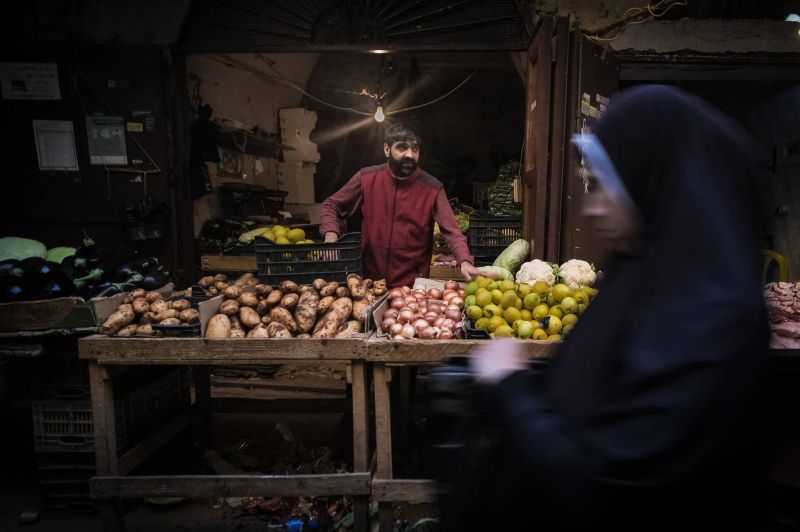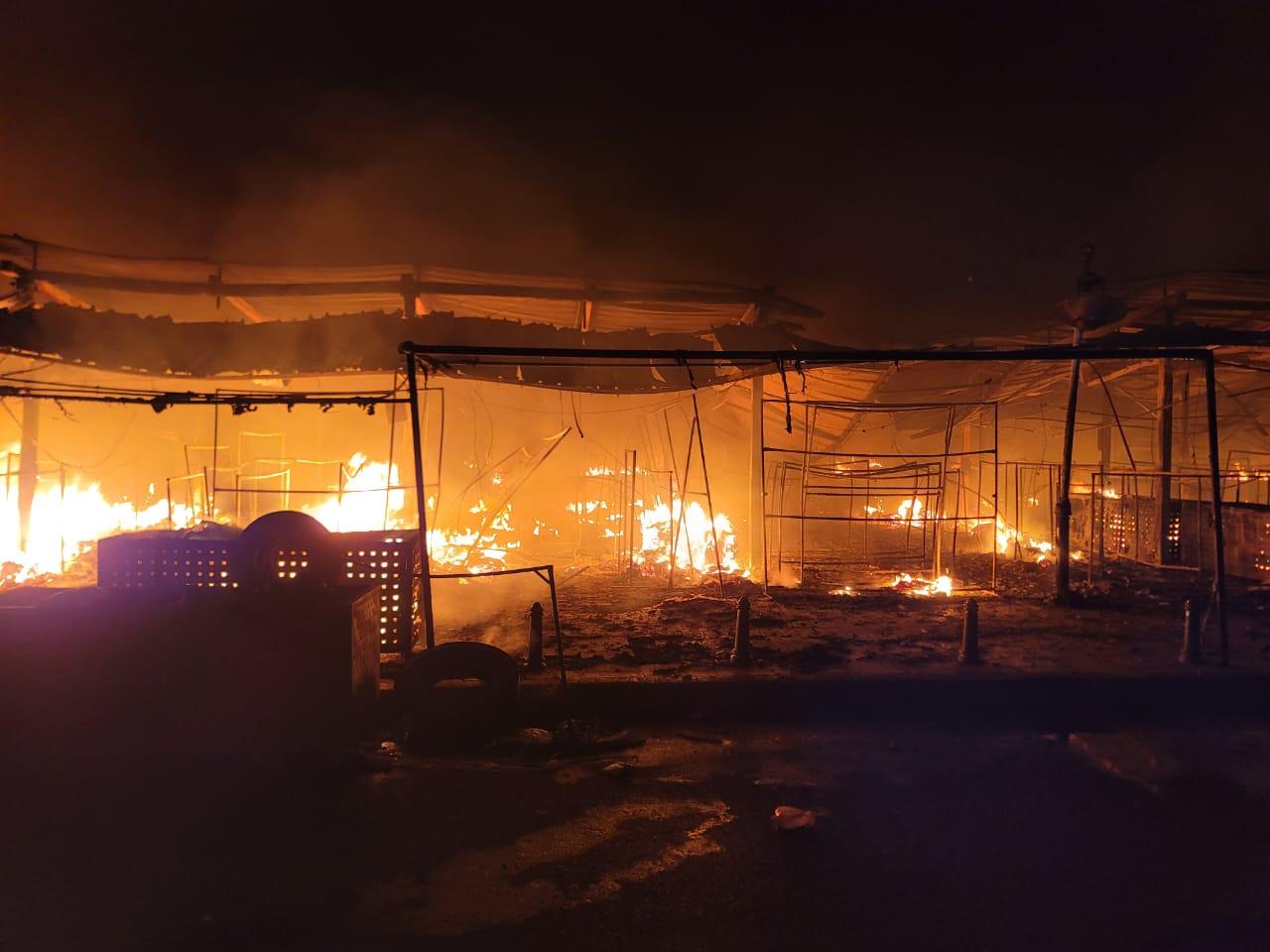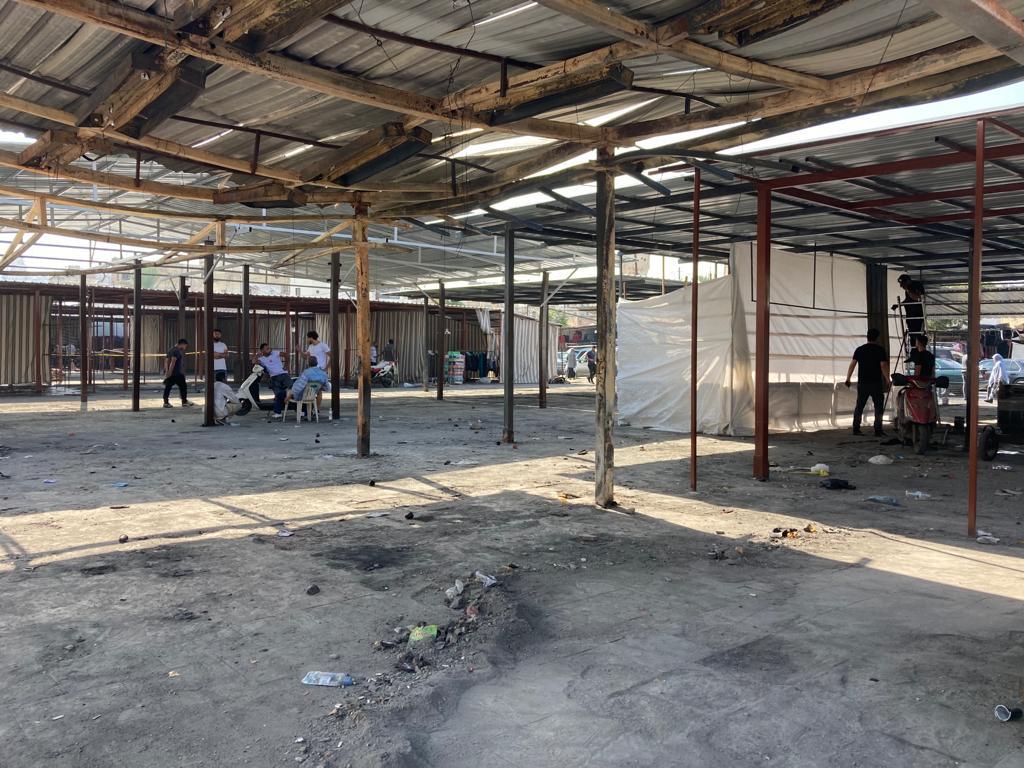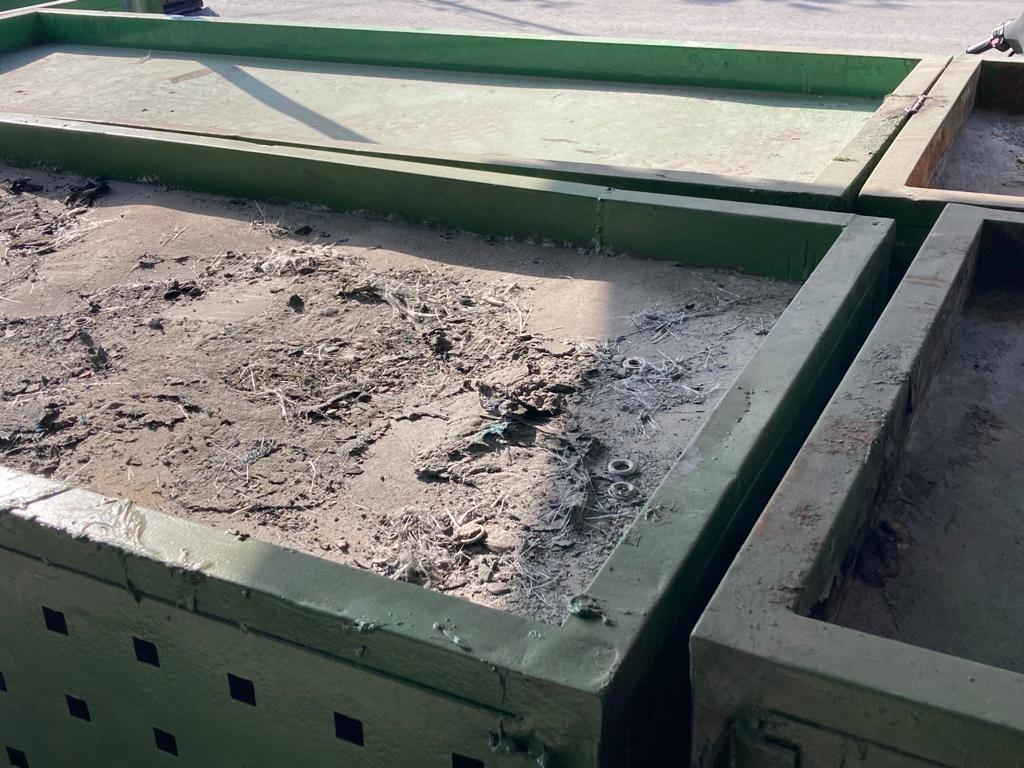
A popular market in Tripoli. (Credit: João Sousa/L'Orient Today/File photo)
TRIPOLI — The smell of burning mingles with that of paint and tools one Sunday morning, three weeks after a massive late-night fire tore through a working-class Tripoli market just steps from the city’s Abu Ali River.
It started on a rainy night between Oct. 15 and 16, according to one vendor, Abu Fadi. First came the sound of shooting. Soon, the market’s electrical circuit reportedly broke down and huge flames reached the threshold of the nearby Abu Ali bridge.
“The whole neighborhood heard the explosion. Then suddenly the rain stopped, a strong wind arose…It was like a violent tsunami of fire.”
According to Abu Fadi, whose fruit and vegetable stall burnt down in the fire, Civil Defense firefighters didn’t arrive until about 2:30 a.m., two and a half hours after the blaze started.
However, according to a Civil Defense fire expert and investigator, “It took between 10 to 15 minutes to reach the place.” He spoke on condition of anonymity to protect his safety. “We arrived as soon as we were called, despite the shooting we could hear.”
 Tripoli’s Souk al-Baleh was devoured by the blaze on the night of Oct. 15. (Courtesy of a market source who helped douse the flames)
Tripoli’s Souk al-Baleh was devoured by the blaze on the night of Oct. 15. (Courtesy of a market source who helped douse the flames)
Either way, the blaze destroyed a large swathe of the Souk al-Baleh, Tripoli’s famed, sprawling second-hand clothing market. Vendors tell L’Orient Today that some 350 stalls — many of them run by Syrian families with few other avenues to earn a living — were devastated by flames that devoured much of the market in a matter of hours. The remaining 150 stalls were unscathed.
Nobody was injured, but vendors claim the destruction caused hundreds of thousands of dollars in losses, which they themselves are now footing the bill for, without help from officials.
A source from Tripoli’s Chamber of Commerce declined to comment when asked if they could confirm the scope of economic losses from the fire.
Outside of Tripoli, news of the huge fire went largely unnoticed, amid the deadly month-long war in Gaza and growing cross-border skirmishes in southern Lebanon.
Lost livelihoods
In a typical working day, each market stall would make around $20. “Some days more, some days nothing at all,” Alaa Hijazi, the owner of a clothing stall that burnt down in the fire, says. He claims he lost $70,000, counting the stall, the storage contained inside, and the taxes he previously paid to the government to fix the walkway within the market.
 Residents of Tripoli’s al-Baraniya neighborhood, a few steps from the Abu Ali River, have come together to help rebuild the flea market. Oct. 29, 2023. (Credit: Valeria Rando/L’Orient Today)
Residents of Tripoli’s al-Baraniya neighborhood, a few steps from the Abu Ali River, have come together to help rebuild the flea market. Oct. 29, 2023. (Credit: Valeria Rando/L’Orient Today)
Amid all the chaos, shopkeepers say they feel forgotten by local officials.
“Here in Lebanon we are invisible, especially in Tripoli,” says Omar, a clothing salesperson also impacted by the fire. He is Syrian, originally from the village of Talkalakh just across Lebanon’s northern border. He used to work in Syria as an engineer.
Because of his nationality, Omar is only able to rent a stall, whereas Lebanese vendors have the possibility of owning theirs.
Still, according to Mohammad, another vendor, “Lebanese, Syrians, we are all in the same situation here. Forgotten by the government. All the problems are in Tripoli, only God takes care of us.” Mohammad had been selling clothing in Souk al-Baleh before the fire.
Originally from North Lebanon and also an engineer, he has to make do with a public school teaching job that provides him with the equivalent of $60 per month, at the current market exchange rate. Mohammad had been using his income from the market stall to supplement his teaching salary.
“I know I am not lucky. I have lost every article of clothing,” Mohammad keeps on repeating, as he continues to paint the structure that will host his new shop.
Hijazi says that this is not the first time a fire has destroyed the Souk al-Baleh, after a similar one broke out in 2019.
According to him, if there had been public water resources available, the size of the fire would have been more manageable, and the damage less severe.
 Abu Fadi’s fruit and vegetables stalls sit freshly repainted and drying. Oct. 29, 2023. (Credit: Valeria Rando/L'Orient Today)
Abu Fadi’s fruit and vegetables stalls sit freshly repainted and drying. Oct. 29, 2023. (Credit: Valeria Rando/L'Orient Today)
Who is responsible?
Despite municipal officials stating that the fire might have indeed been provoked by an electrical short circuit, vendors say the promised investigations have not yet arrived.
A councilor from the municipality, who spoke on condition of anonymity, confirmed this fact. “There was no investigation. Even if they did, we wouldn’t have trusted it,” the councilor tells L’Orient Today. “The Darak, the Lebanese Internal Security Forces, since they are barely paid, don’t do their job,” he says.
Amid the silence, vendors say they have been left to fend for themselves to rebuild what they can of their burnt stalls.
Among the 350 destroyed stalls, about 335 are legally registered, while the other 15 or so are “illegal,” according to Hijazi. He says he feels the “illegal” status of those stalls contributes to public neglect.
The councilor told L'Orient Today that the municipality of Tripoli legally owns the market, having the license and the responsibility to lease its stalls. Though, in the lack of a state of law, and in what a source from the municipality defined as “the rule of gangs,” it does not control the market in practice – meaning that, in the councilor’s reasoning, the municipality has no responsibility or capacity to provide funds to rebuild it.
“Most of the stalls you’ll see today are illegal,” he adds. “All of them sublet the stalls from one person to another, especially to Syrians, hidden in the illegal business.” He means that even the stores legally registered are not run by their legal tenants today, but rather by the unregistered vendors to whom they sublet the stalls.
Further complicating things, a power struggle over the 2022 election results in Tripoli’s municipal council means it’s unclear who is actually in charge of the municipality – or fire cleanup. “They only care about money and chairs, that’s why we didn’t ask money nor help from them,” one market worker tells L’Orient Today, requesting anonymity. “We want nothing from the municipality, we just want to work.”
Workers have already removed the burnt rubbish from the scene of the fire, using their own resources and time just as they are with rebuilding their stalls. And yet, there are the former stall owners who remain absent from the reconstruction efforts: those who will not reopen, because they cannot pay for repairs.
Instead, they now sit on street corners, selling what they can of the goods that survived the fire.
